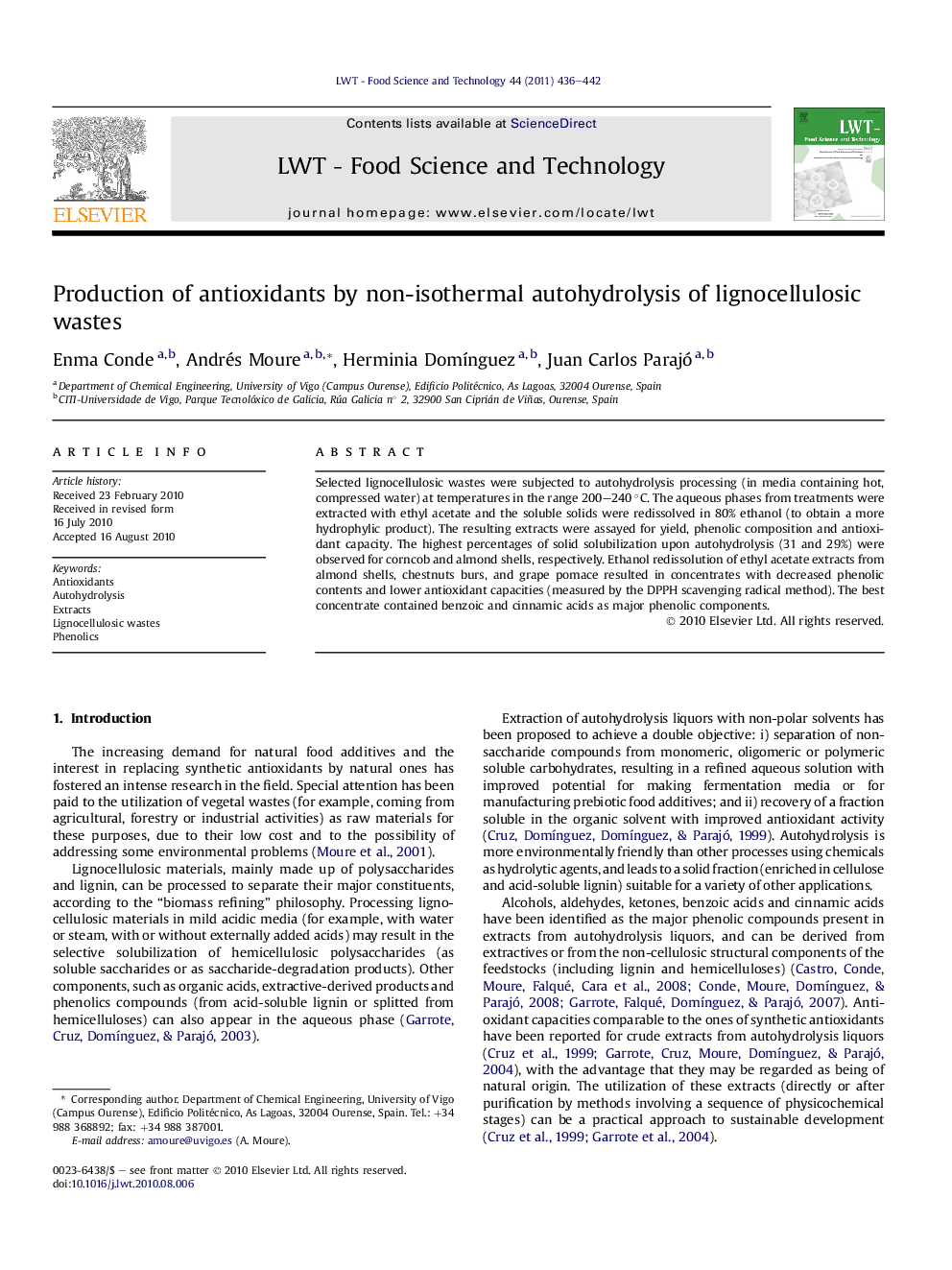| Article ID | Journal | Published Year | Pages | File Type |
|---|---|---|---|---|
| 4564040 | LWT - Food Science and Technology | 2011 | 7 Pages |
Selected lignocellulosic wastes were subjected to autohydrolysis processing (in media containing hot, compressed water) at temperatures in the range 200–240 °C. The aqueous phases from treatments were extracted with ethyl acetate and the soluble solids were redissolved in 80% ethanol (to obtain a more hydrophylic product). The resulting extracts were assayed for yield, phenolic composition and antioxidant capacity. The highest percentages of solid solubilization upon autohydrolysis (31 and 29%) were observed for corncob and almond shells, respectively. Ethanol redissolution of ethyl acetate extracts from almond shells, chestnuts burs, and grape pomace resulted in concentrates with decreased phenolic contents and lower antioxidant capacities (measured by the DPPH scavenging radical method). The best concentrate contained benzoic and cinnamic acids as major phenolic components.
